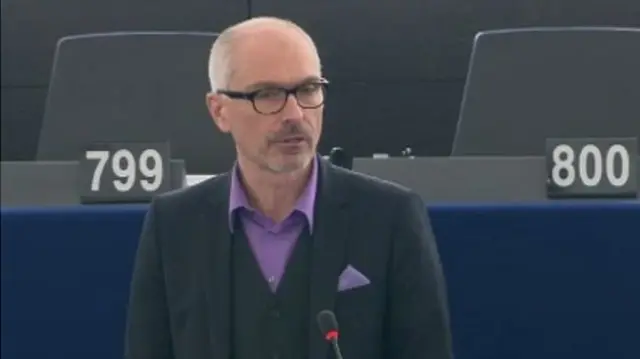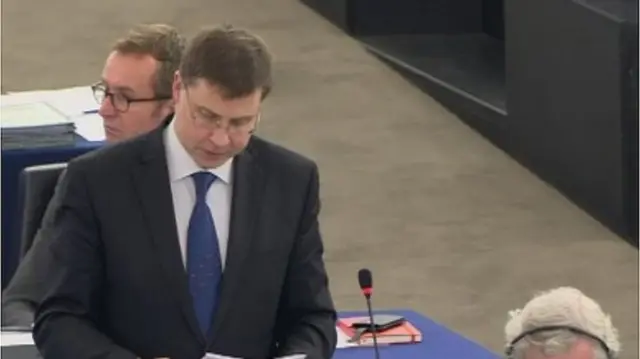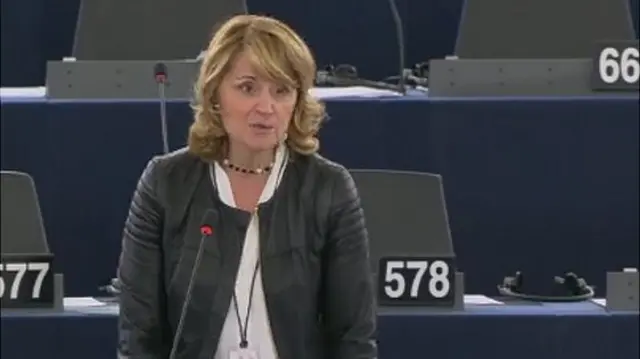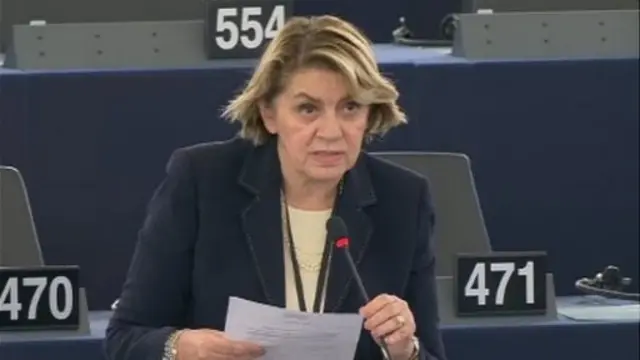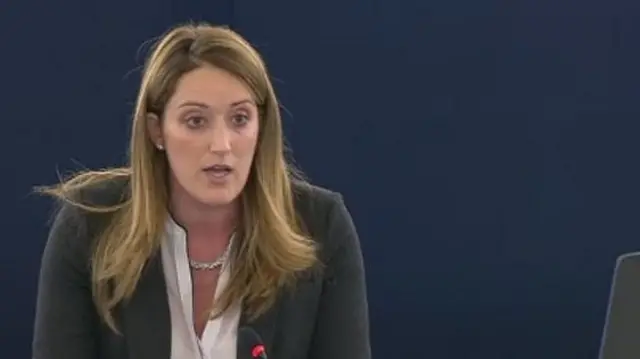'Globalisation agenda'published at 18:57 GMT 26 November 2014
French Front National MEP Nicolas Bay strikes a melancholy note as he says that he thinks the only outcome of the G20 summit was the confirmation that the EU is wedded to a "globalisation agenda" founded on the continued "economic dominance" of the Unites States.
